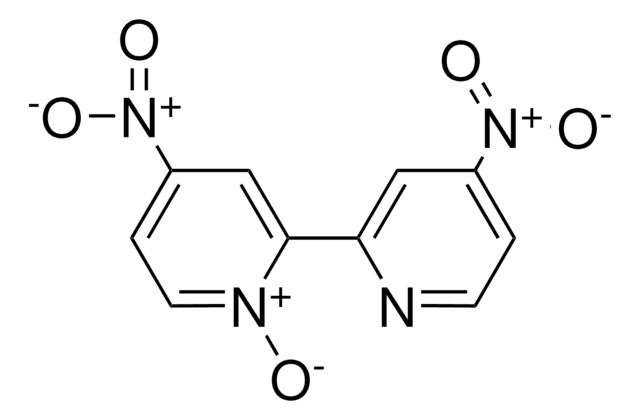245739
4,4′-Dimethyl-2,2′-dipyridyl
99%
Synonym(s):
2,2′-Bi(γ-picoline), 4,4′-Dimethyl-2,2′-bipyridine
Sign Into View Organizational & Contract Pricing
All Photos(2)
About This Item
Empirical Formula (Hill Notation):
C12H12N2
CAS Number:
Molecular Weight:
184.24
Beilstein:
128995
EC Number:
MDL number:
UNSPSC Code:
12352100
PubChem Substance ID:
NACRES:
NA.22
Recommended Products
Quality Level
Assay
99%
form
solid
mp
169-174 °C (lit.)
SMILES string
Cc1ccnc(c1)-c2cc(C)ccn2
InChI
1S/C12H12N2/c1-9-3-5-13-11(7-9)12-8-10(2)4-6-14-12/h3-8H,1-2H3
InChI key
NBPGPQJFYXNFKN-UHFFFAOYSA-N
Looking for similar products? Visit Product Comparison Guide
Application
4,4′-Dimethyl-2,2′-dipyridyl was used in the synthesis of a series of o-phenanthroline-substituted ruthenium(II) complexes. It was also used as a starting material for the synthesis of a blue luminescent molecule with emission at 450nm and a quantum yield of 43%.
Signal Word
Warning
Hazard Statements
Precautionary Statements
Hazard Classifications
Eye Irrit. 2 - Skin Irrit. 2 - STOT SE 3
Target Organs
Respiratory system
Storage Class Code
11 - Combustible Solids
WGK
WGK 3
Flash Point(F)
Not applicable
Flash Point(C)
Not applicable
Personal Protective Equipment
dust mask type N95 (US), Eyeshields, Gloves
Choose from one of the most recent versions:
Already Own This Product?
Find documentation for the products that you have recently purchased in the Document Library.
Customers Also Viewed
Byeong Hyo Kim et al.
Talanta, 62(3), 595-602 (2008-10-31)
A series of o-phenanthroline-substituted ruthenium(II) complexes containing 2,2'-dipyridyl, 2-(2-pyridyl)benzimidazole, 2-(2-pyridyl)-N-methylbenzimidazole, 4-carboxymethyl-4'-methyl-2,2'-dipyridyl, and/or 4,4'-dimethyl-2,2'-dipyridyl ligands were synthesized and examined as potent electrochemiluminescent (ECL) materials. The characteristics of these complexes, regarding their electrochemical redox potentials and relative ECL intensities for tripropylamine were
Journal of Materials Chemistry, 16, 4468-4468 (2006)
Maxime Mourer et al.
Bioorganic & medicinal chemistry, 20(6), 2035-2041 (2012-03-01)
Various polycharged calix[4]arenes were assayed as anti-mycobacterial agents against Mycobacterium tuberculosis, H(37)Rv strain. The sulfonate, carboxylate and phosphonate anionic species displayed no activity. Cationic derivatives integrating four aminoethyl groups at the upper rim and two 6,6'-dimethyl-2,2'-bipyridyl- or 4,4'-dimethyl-2,2'-bithiazolyl subunits at
Yang-Hui Luo et al.
Dalton transactions (Cambridge, England : 2003), 43(44), 16937-16942 (2014-10-11)
A new iron(II) complex based on the 4,4'-dimethyl-2,2'-bipyridine ligand [Fe(4,4'-dmbpy)3(ClO4)(SCN)·3H2O (1·3H2O)] has been prepared and characterized. Structural studies and Hirshfeld surface analysis for complex 1·3H2O at three different temperatures (300, 240 and 130 K) are described. The UV-vis absorption spectrum
Tommy Siu-Ming Tang et al.
Chemistry (Weinheim an der Bergstrasse, Germany), 21(30), 10729-10740 (2015-06-23)
The synthesis, characterization, photophysics, lipophilicity, and cellular properties of new phosphorescent ruthenium(II) polypyridine complexes functionalized with a dibenzocyclooctyne (DIBO) or amine moiety [Ru(N^N)2 (L)](PF6 )2 are reported (L=4-(13-N-(3,4:7,8-dibenzocyclooctyne-5-oxycarbonyl) amino-4,7,10-trioxa-tridecanyl-aminocarbonyl-oxy-methyl)-4'-methyl-2,2'-bipyridine bpy-DIBO, N^N=2,2'-bipyridine bpy (1 a), 1,10-phenanthroline phen (2 a); L=4-(13-amino-4,7,10-trioxa-tridecanylaminocarbonyl-oxy-methyl)-4'-methyl-2,2'-bipyridine bpy-NH2 , N^N=bpy
Our team of scientists has experience in all areas of research including Life Science, Material Science, Chemical Synthesis, Chromatography, Analytical and many others.
Contact Technical Service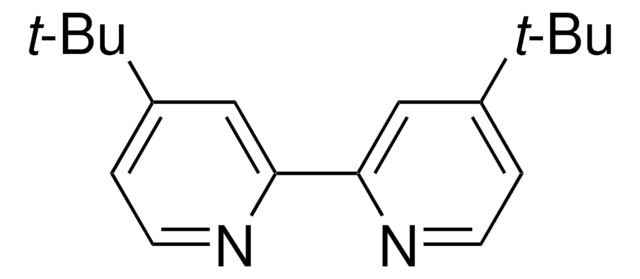
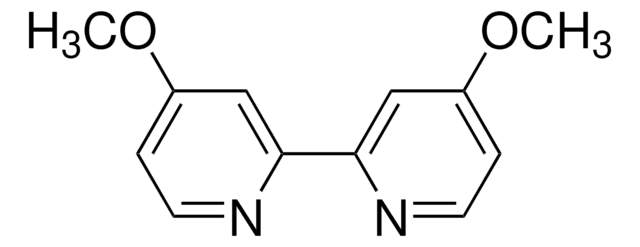
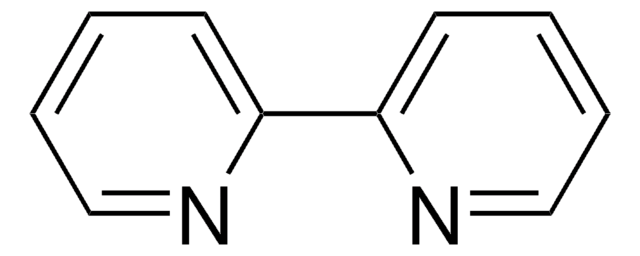


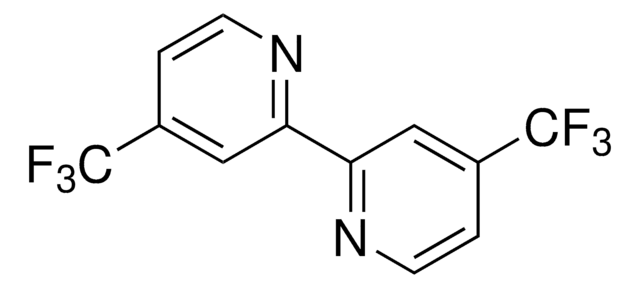
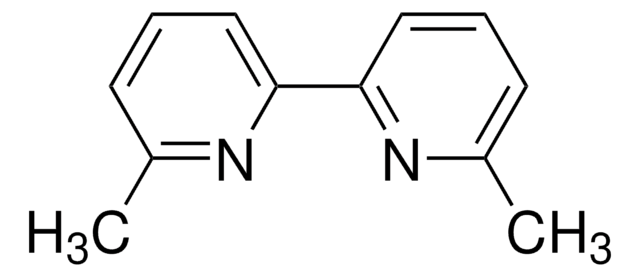
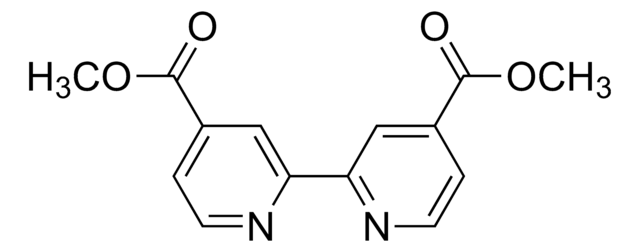

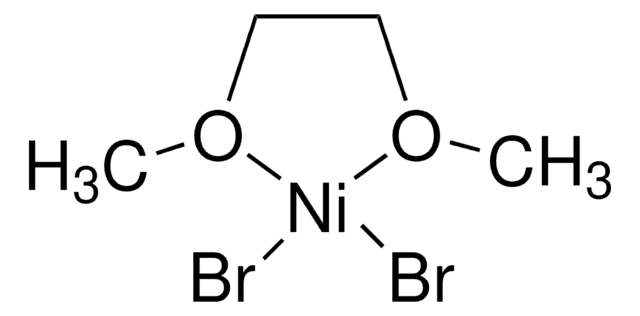

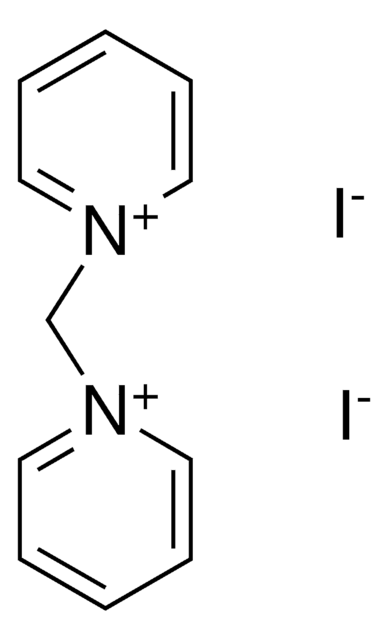
![[4,4′-Dimethyl-2,2′-bipyridine]nickel(II) dichloride hydrate ≥95%](/deepweb/assets/sigmaaldrich/product/structures/714/807/6f838a65-cb7b-400f-bdb3-3e207bb2ddc4/640/6f838a65-cb7b-400f-bdb3-3e207bb2ddc4.png)
